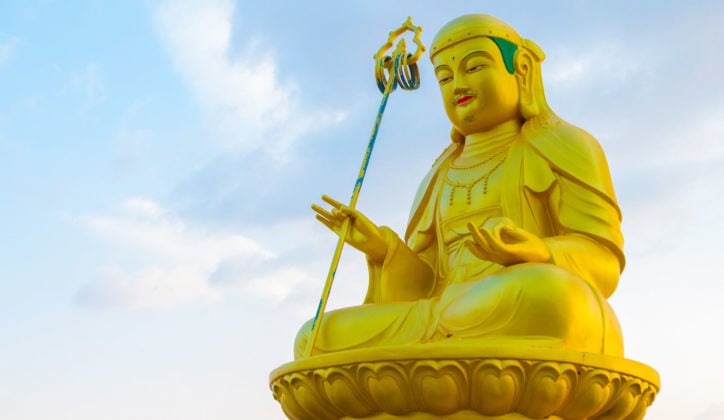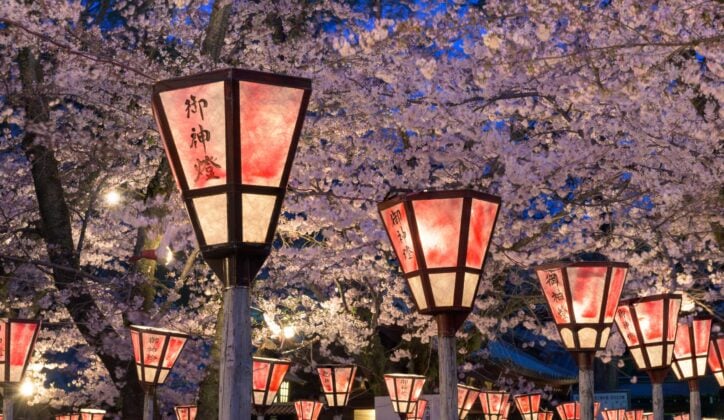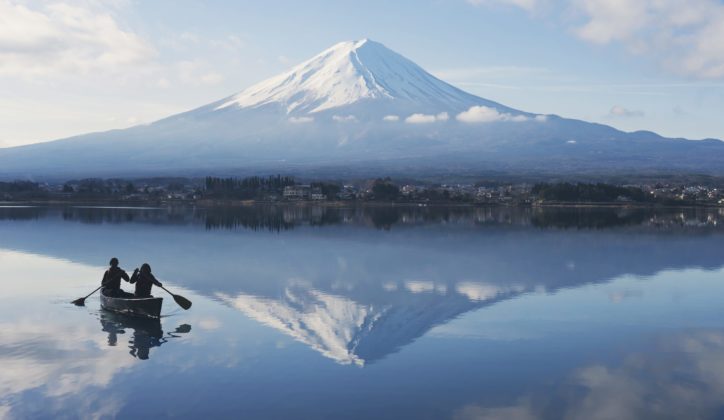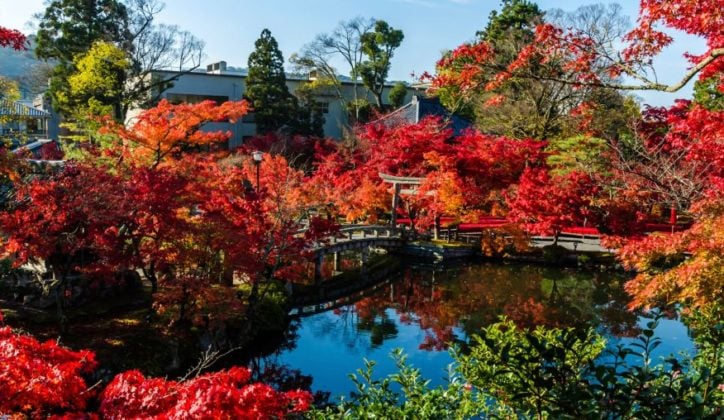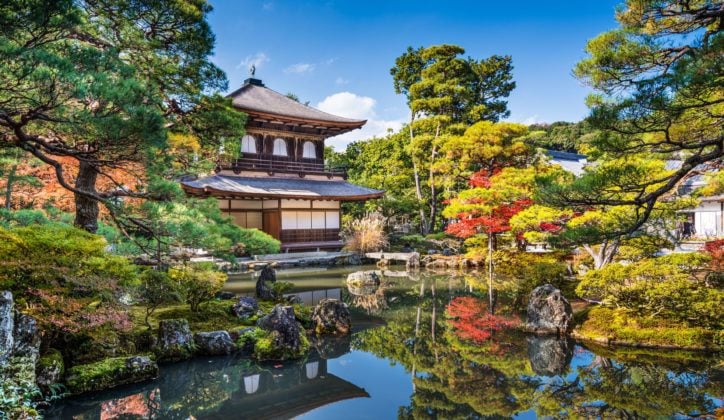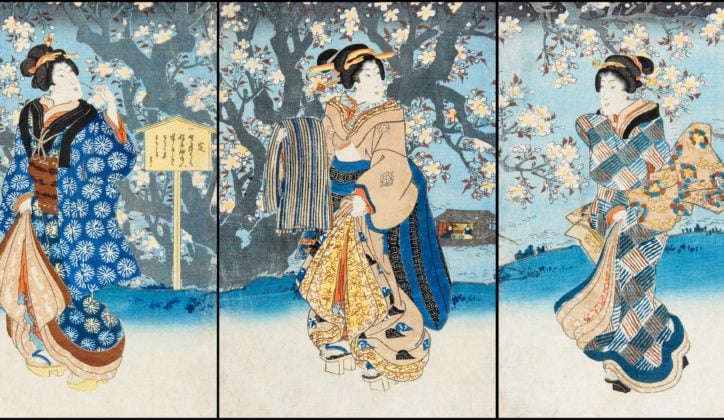Published on: February 29th, 2024
Last modified: February 29th, 2024
Ryokans and Japanese tradition go hand in hand. For centuries these inns have opened their doors to weary travellers, and today they welcome curious guests with the signature spirit of ‘omotenashi’ – a sincere and selfless approach to hospitality. Tatami mats and traditional decor add to the tranquil atmosphere that classic ryokans exude.
Many ryokans feature onsen, or natural hot springs. Because of this, the difference between ryokans and onsen can be confusing. A ryokan is the inn itself, which may or may not have its own hot spring baths, and some onsen are public, rather than being part of a ryokan.
Although ryokans are emblematic of traditional Japanese hospitality and heritage, many also incorporate aspects of modern luxury through a delicate fusion of past and present. From the most authentic and immersive experiences to contemporary reimaginings of this age-old concept, here are the best ryokans in Japan.
1. Gōra Kadan – Hakone
Located in the beautiful Fuji-Hakone-Izu National Park, Gōra Kadan is among the most renowned ryokans in Hakone. It strikes the perfect balance between old and new, offering all the elements of a traditional Japanese inn plus an elevated sense of luxury. Enjoy the rejuvenating onsen and refined kaiseki: meals of elaborate small plates prepared with exceptional care.
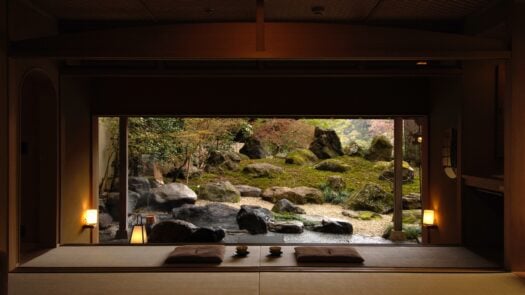
The suites at Gōra Kadan reflect both the minimalist aesthetic of classic ryokans and modern touches like smart TVs and bluetooth speakers. It’s also one of Japan’s best ryokans with private onsen; the rooms boast open-air rock pools and panoramic baths that promise privileged views of the surrounding forests, mountains and landscaped gardens.
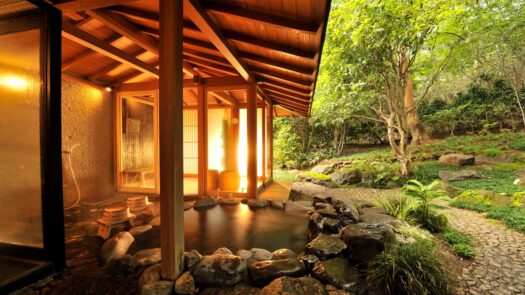
2. Hoshinoya – Kyoto
There are plenty of ryokans amidst the ancient shrines and shining skyscrapers of Kyoto, but Hoshinoya is in a class of its own. Located on the banks of a gently flowing river at the foot of Mt. Arashiyama, it was once a retreat for the city’s aristocrats. Today it welcomes visitors to 25 gorgeous guest pavilions, each outfitted with picture windows and handcrafted details.
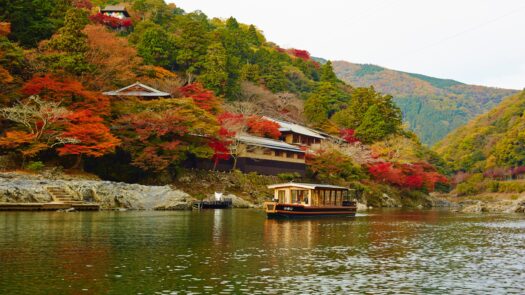
Breakfast at Hoshinoya is brought straight to your room, encouraging you to savour it slowly as the morning unfolds. Dinner is also a mindful affair, with creative dishes inspired by the cuisine of Kyoto and seasonal products. Although there’s no onsen, there are plenty of activities on offer, including traditional dance performances, boat rides, meditation, spa treatments and more.
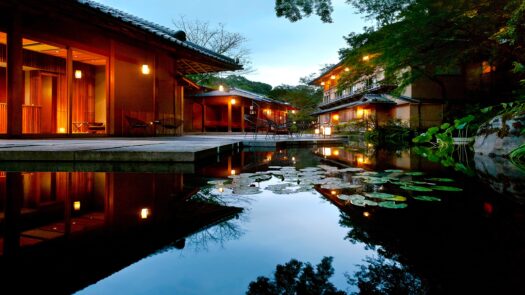
3. Beniya Mukayu – Kanazawa
Beniya Mukayu is a refined onsen ryokan on the coast near Kanazawa. Owned and operated by the Nakamichi family for nearly a century, it’s a fantastic place to experience authentic Japanese culture. The inn’s philosophy of ‘richness in emptiness’ is reflected in its light-filled rooms and suites, each of which has its own hot spring bath with views of the leafy forest garden.
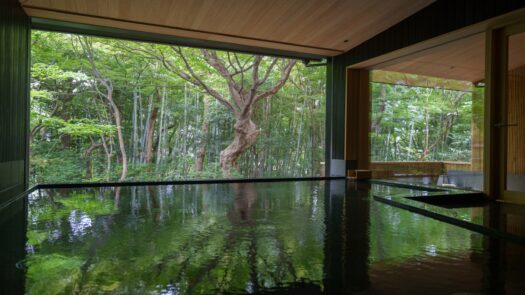
Beniya Mukayu also has two communal baths, Gensei and Usuko, which are designed for meditation and purification, respectively. There are three different libraries, an intimate spa and exclusive experiences like art and architecture tours and tea ceremonies. The Kaiseki Horin restaurant is chic and sparse, serving seasonal tasting menus as well as sushi and meat dishes.
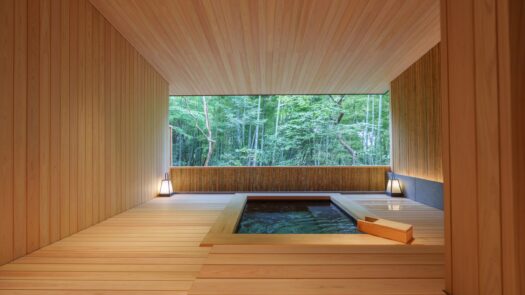
4. Ryokan Urashima – Sado Island
Ryokan Urashima may not look much like a traditional inn, but it’s an absolute icon of Sado Island. This coastal retreat is composed of two buildings: one surrounded by ancient pine forests and the other a modern masterpiece of steel and glass. Both offer a choice between Western-style accommodation and traditional tatami rooms.
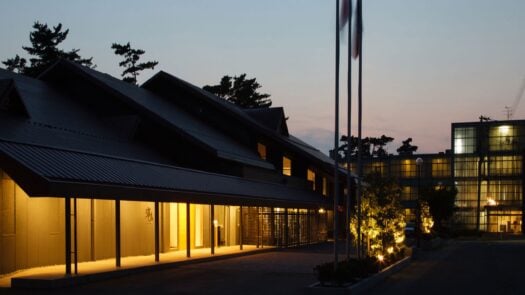
Ryokan Urashima doesn’t have onsen, but its seaside location more than makes up for it. The inn is especially renowned for its cuisine, which highlights fresh seafood sourced daily from the local fish market. There’s also La Plage, a French restaurant offering lovely views of Mano Bay.
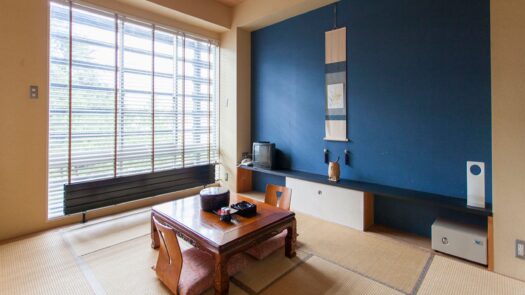
5. Jinpyokaku Honten – Yamanouchi
The town of Yamanouchi is perhaps best known for the nearby Jigokudani Snow Monkey Park, but it’s also renowned for its natural hot springs. Jinpyokaku Honten is set in the village of Kamibayashi Onsen within walking distance of the snow monkey park, making it a wonderful home base for exploring the area.
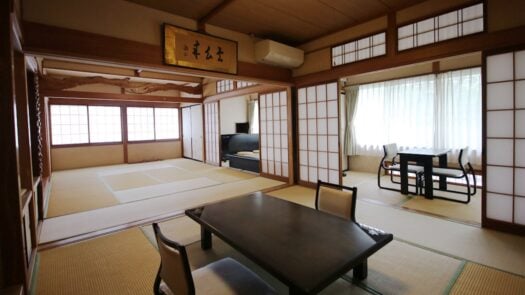
Jinpyokaku Honten has just six guest rooms, each with its own distinctive combination of traditional Japanese design and modern amenities. Highlights include indoor and outdoor hot spring baths, creative kaiseki made with regional ingredients and a selection of artisanal sake.
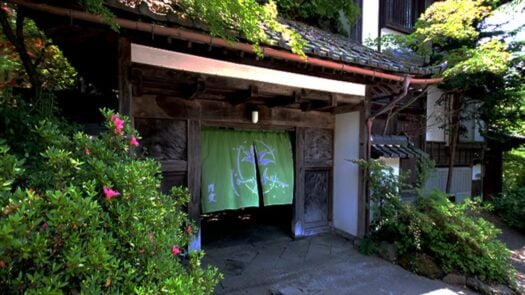
6. Kanamean Nishitomiya – Kyoto
With only seven rooms, Kanamean Nishitomiya is easily among the best ryokans in Kyoto for a peaceful escape. Although it’s located right downtown, the hotel’s serene garden and traditional aesthetic give it the feel of an urban oasis. The rooms feature light wood, large windows and thoughtful touches like flower arrangements and bathtubs made of Hinoki cypress wood.
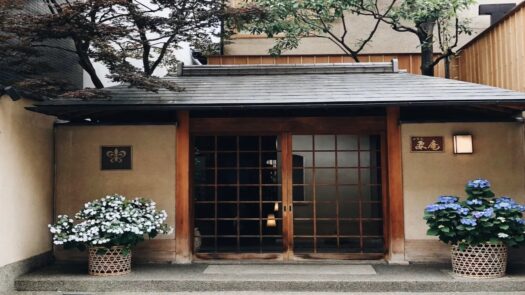
Kanamean Nishitomiya’s restaurant has been awarded a Michelin star for its contemporary kaiseki, making it a must-visit for foodies in Japan. The inn is also a top choice for a family trip to Japan, as kids of all ages are welcome and most of its rooms can accommodate three or four guests.
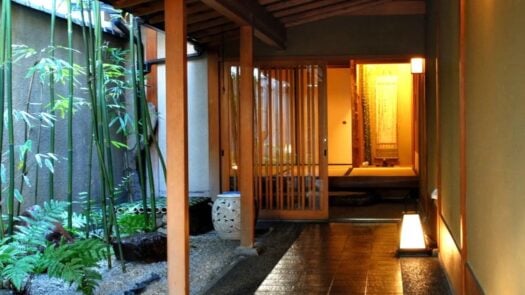
7. Asadaya – Kanazawa
Located in the middle of Kanazawa, this cosy Japanese inn has been welcoming visitors since 1867. Asadaya offers a truly intimate and personalised experience, with four rooms featuring private terraces and gardens. Each guest can select their own yukata (a comfortable cotton kimono) and choose from a selection of pillows to feel right at home.
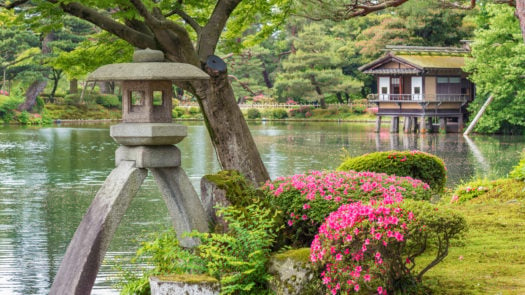
Asadaya is also well known for the quality of its cuisine. Local fishermen provide fresh seafood year round, and certain seasonal ingredients are sourced from across Japan. The result is a carefully crafted menu that honours the specific culinary traditions of Kanazawa.
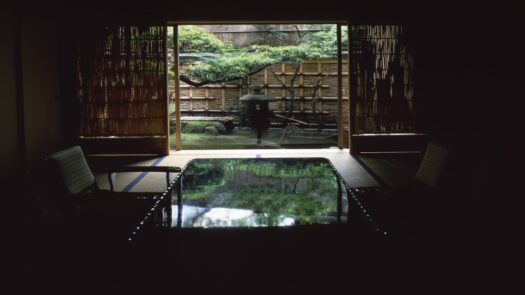
8. Hiiragiya – Kyoto
Arriving at Hiiragiya feels like stepping straight back into Japan’s past. Opened in 1818 during the Edo period, this inn is a beautifully preserved piece of history. Its main building features traditional architecture and elegance, while the new wing offers slightly more modern style. Every room boasts unique artisanal details like painted screens and antique writing boxes.
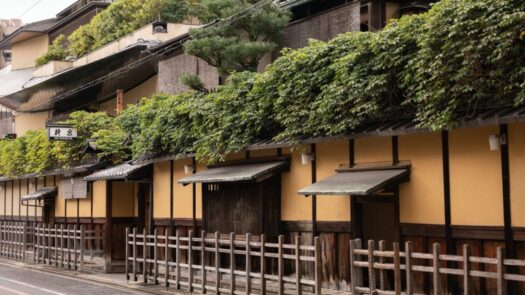
The dining experience at Hiiragiya is firmly focused on local specialties. Dinner is a delicious display of Kyo-kaiseki, Kyoto’s take on the kaiseki concept, and breakfast includes the city’s signature tofu (widely considered to be the best in Japan) with fish and rice.
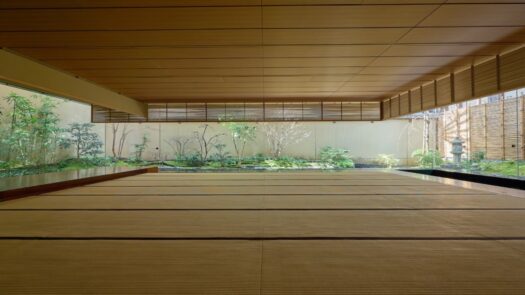
Trip Inspiration
Whatever you want from you trip to Japan, our travel designers are ready to help



